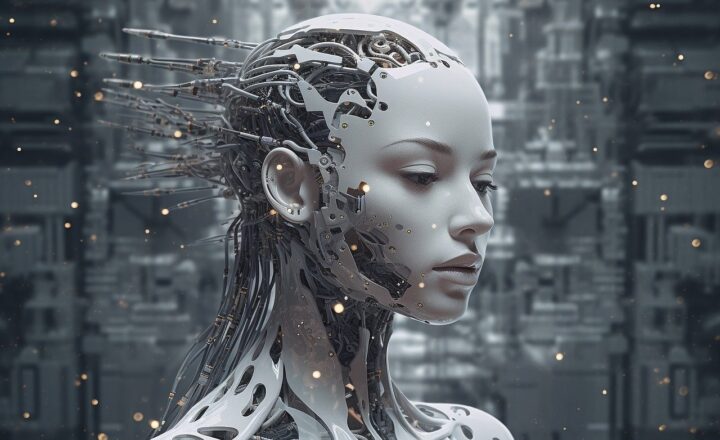
Artificial intelligence (AI) is no longer confined to the realm of futuristic fiction; it has become an integral part of our daily lives. From the moment we wake up to the time we go to bed, AI algorithms and systems influence our decisions, streamline our tasks, and even shape our interactions with others. This article explores the multifaceted ways AI operates behind the scenes and its profound impact on our modern existence.
1. Understanding Artificial Intelligence: A Brief Overview
Artificial intelligence refers to the simulation of human intelligence in machines that are programmed to think like humans and mimic their actions. AI can be categorized broadly into two types: Narrow AI and General AI. Narrow AI is designed and trained for specific tasks, such as facial recognition or language translation, while General AI would theoretically possess the capability to understand, learn, and apply intelligence like a human across a broad range of tasks.
AI systems employ a combination of data, algorithms, and computing power to learn from experience and improve their performance over time. As businesses and research institutions continue to develop these systems, AI has started to infiltrate various industries, leading to an era of unprecedented change.
2. The Hidden Role of AI in Daily Tasks
You might not realize it, but AI is playing a role in various everyday activities. Here are some examples:
- Smart Home Devices: Products like smart thermostats, lights, and security cameras are equipped with AI algorithms that learn your preferences over time and adjust settings automatically. For instance, a smart thermostat can learn when you typically arrive home and adjust the temperature accordingly, ensuring comfort when you walk through the door.
- Voice Assistants: Virtual assistants such as Amazon’s Alexa, Apple’s Siri, and Google’s Assistant utilize AI to recognize voice commands and execute a range of tasks—from setting reminders to searching for information and controlling smart home devices.
- Personalized Recommendations: Streaming platforms like Netflix and Spotify leverage AI to analyze user behavior and preferences, providing tailored content suggestions based on what you’ve previously watched or listened to. These systems continuously learn and refine their recommendations to improve user satisfaction.
- Email Filtering and Spam Detection: Email services deploy AI algorithms to filter out spam and prioritize important messages based on established user preferences, thus improving productivity and streamlining communication.
These applications of AI demonstrate its critical role in enhancing convenience and efficiency in our daily lives, often without our conscious awareness.
3. AI in Work and Education
The influence of AI extends to workplaces and educational institutions as well. Here are some of the transformative effects:
- Automation of Routine Tasks: AI software can automate repetitive tasks, allowing employees to focus on more complex projects. For example, chatbots can handle basic customer inquiries, freeing up human agents to address more sophisticated issues.
- Enhanced Learning Experiences: In education, AI-driven tools can personalize learning experiences for students, adapting the material according to individual progress and learning styles. Adaptive learning platforms can improve engagement and retention rates by catering to each student’s unique needs.
- Data Analysis and Insights: In many industries, AI-powered analytics tools can process vast amounts of data, uncover patterns, and provide actionable insights. This not only aids in decision-making but also helps companies understand and predict market trends more effectively.
To remain competitive in today’s evolving job market, both employees and students must embrace AI and leverage it to enhance their skills and productivity.
4. The Health Sector: A Paradigm Shift with AI
AI is also making waves in the healthcare industry, where its capabilities offer the potential for revolutionary changes:
- Diagnostics and Predictive Analytics: AI algorithms can analyze medical data and images to assist healthcare professionals in diagnosing diseases more accurately. For instance, AI systems are proving to be instrumental in identifying conditions such as cancer at earlier stages through image recognition technology.
- Personalized Treatment Plans: Using data from patient histories, genetics, and more, AI can help design tailored treatment plans that optimize care for individual patients, improving overall outcomes.
- Predicting Disease Outbreaks: AI can analyze data from various sources, including social media, to predict and monitor epidemic outbreaks. This proactive approach allows healthcare organizations to deploy resources more effectively and mobilize rapid responses.
Through its applications in healthcare, AI is enhancing diagnostics, personalizing treatment, and optimizing resource management.
5. The Ethical Implications of AI
While the benefits of AI are vast, ethical concerns are being raised regarding its integration into society. Some of these concerns include:
- Privacy Issues: AI systems often rely on large datasets, which raises significant privacy concerns regarding the collection, storage, and use of personal information. Striking a balance between data utilization and individual privacy remains a pressing challenge.
- Job Displacement: As automation becomes more widespread, fears of job loss in industries reliant on manual labor are prevalent. Transitioning workers into new roles requires comprehensive strategies and retraining programs.
- Bias and Discrimination: AI algorithms can perpetuate biases if trained on non-representative datasets, resulting in discrimination in areas such as hiring and law enforcement. Ensuring fairness and accountability in AI systems is crucial in minimizing these risks.
Addressing these ethical implications is essential for ensuring the responsible development and deployment of AI technologies.
Conclusion: Embracing AI with Mindfulness
As artificial intelligence continues to evolve and permeate different facets of our lives, understanding its influence and capabilities is vital. By acknowledging AI’s role and advocating for responsible practices, we can harness the technology to enhance our daily experiences while also being mindful of the associated risks. Our futures are undeniably intertwined with AI, making it imperative to engage in conversations about its applications, ethical considerations, and the promise it holds for societal progress.
Embrace the changes AI brings into our lives, but do so with a critical eye, ensuring that we maintain our values and humanity in the age of machines.






